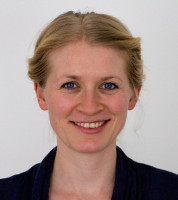Societal Challenges
Economics & Global Development
Social Cohesion & Community Building
Political Economy & Governance
Inequality & Poverty
Social Protection
Post-Doctoral Fellowships
United Kingdom
2016.11.30
The price of bread as a measure of urban stability
Investigating the everyday discourses and practices around bread preparation
Building on these observations, Dr. Katharina Graf aims to explore in detail the relationship be-tween the Moroccan state and its citizens as bread makers and consumers. Using an anthropological and ethnographic approach, the study will investigate the everyday discourses and practices around bread preparation, from agricultural production through to consumption. She will conduct interviews and examine how food travels through the food chain. "I will look at how the little things connect to bigger issues", she summarizes. "When people prepare bread, they choose between a large number of different flours and grains, some of which are local products while others are imported. These choices also reflect a political stance and can be used as indicators of ordinary people’s opinions about national policies around agriculture, import subsidies and export."
While the Moroccan context is certainly unique, there are many similarities with its Arab neigh-bours and other countries across the globe. In this sense, Dr. Katharina Graf's investigation will be relevant beyond Morocco. Furthermore, her investigation into Moroccan culture around bread consumption aims to strengthen our understanding of the role of food in urban stability in a broad sense. "The whole question around the sustainability of food is and will continue to be a hugely important issue, especially in the context of climate change", she points out. In order to make her findings accessible to the largest number of people, Dr. Katharina Graf plans to use innovative frames for dissemination such as a photo exhibition at the Brunei Gallery in London, poetry and comedy clubs, and even cookery classes.

Katharina
GRAF
Institution
Food Studies Centre Arts and Humanities School of Oriental and African Studies
Country
United Kingdom
Nationality
German
Related articles
Finance, Investment & Risk Management
Societal Challenges
Microfinance & Financial Inclusion
Emerging Market
Inequality & Poverty
Joint Research Initiative
China
2021.04.19
Understanding the Financial Lives of Low Income Households in China
Leveraging financial diaries research methodology, this joint initiative aims to provide actionable insights about the financial lives of low-income households... Read more

Xiugen
MO
Chinese Academy of Financial Inclusion
Societal Challenges
Pandemics & Infectious Diseases
Inequality & Poverty
Emerging Market
Social Justice & Equity
Covid-19
AXA Award
Ghana
2020.08.31
Adapting Pandemic Management to Vulnerable Populations
The first employs a cross-country survey approach to answer the following questions: what are the impacts of pandemics on informal... Read more

Mohammed
AMIDU
